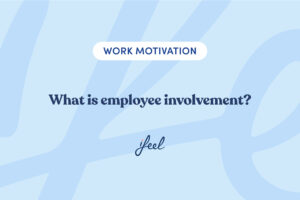In today’s corporate landscape, decision-makers and HR leaders must balance productivity with maintaining employee mental well-being. One effective strategy gaining momentum is implementing a sabbatical leave policy. A sabbatical leave is an extended period of paid or unpaid time off that allows employees to step away from their daily responsibilities and focus on personal growth, mental rejuvenation, or professional development.
Are you a decision-maker thinking of implementing a sabbatical leave policy?
Then dive deep into our article, which explores the benefits of sabbatical leave for employees and decision-makers alike, and provides new insight into why implementing a sabbatical leave policy could be key to your organisation’s long-term success.
What is a sabbatical leave?
Traditionally associated with academic environments, sabbaticals are increasingly being adopted by forward-thinking companies around the world. Employees take an extended break, typically lasting from a few weeks to a year, while maintaining their position within the organisation. It’s a time to recharge, learn new skills, or focus on personal projects, returning to work with renewed energy and motivation.
But remember: sabbaticals aren’t just a “nice-to-have” perk-they can be a strategic tool for improving mental well-being, leadership skills, and even business performance.

Sabbatical leave benefits: employees, decision-makers, and the company
This section breaks down the key benefits of sabbaticals for employees, decision-makers, and the company as a whole, showing how this approach can drive personal growth, leadership effectiveness, and organisational success simultaneously.
| Employees | Decision Makers | The Company |
| 1. Reduces burnout and enhances well-Being: Research shows that sabbatical provides mental rest and rejuvenation. | 1. Retention of top talent: Sabbaticals help retain top talent by offering personal growth opportunities. | 1. Boosts loyalty: A company offering sabbaticals builds a strong reputation for supporting work-life balance. |
| 2. Fosters personal growth: Time away allows for self-reflection, hobbies, and new learning experiences. | 2. Development of future leaders: Employees return with new skills and leadership potential. | 2. Strengthens leadership pipeline: Employees returning from sabbaticals often take on leadership roles. |
| 3. Encourages mindfulness and creativity: Stepping back from daily tasks enhances creativity and innovation. | 3. Increased productivity post-sabbatical: Refreshed employees are more engaged and productive. | 3. Gains in productivity: Mental refresh results in higher contributions and innovative thinking. |
| 4. Improves work-life balance: A sabbatical provides employees time to focus on personal life and reset their work-life balance. | 4. Cross-team Sskill development: Teams manage duties in their absence, promoting cross-training. | 4. Stronger teams: Other employees step up, gaining experience and improving collaboration during sabbaticals. |
| 5. Increases job satisfaction: Employees feel more valued and fulfilled when given the opportunity to take extended leave for personal growth. | 5. Improved morale: Employees appreciate a leadership team that values well-being and growth. | 5. Positive company culture: A sabbatical policy improves morale and strengthens the company culture. |
Best practices for implementing sabbaticals
The following best practices help leaders implement a sabbatical leave policy that supports employee well-being, encourages leadership development, and maintains business continuity while the employee is away. Here’s how to make sabbaticals a win-win for both employees and the organisation.
- Set clear guidelines: Outline who qualifies for sabbaticals, the length of time, and the conditions for returning.
- Encourage knowledge transfer: Prepare a strategy to manage workflows while the employee is away. Temporary team leads can help foster new skills and leadership abilities.
- Offer flexibility: The company can offer paid and unpaid sabbaticals, depending on its needs. Having options allows employees to choose what’s best for their financial situation.
- Promote mental health benefits: Make it clear that sabbaticals are a tool for both professional development and mental health improvement.
Questionnaire: Is sabbatical leave right for you?
As a leader or decision-maker, you know that balancing high performance with employee well-being is essential for long-term success. But when do you know it’s time to offer (or take) a sabbatical leave?

This questionnaire is designed to help both employees and decision-makers evaluate whether sabbatical leave could be the key to unlocking higher productivity, personal growth, and mental well-being.
Take a moment to reflect on these questions and assess whether a sabbatical might be the right step for you, your team, or your company.
- Do you often feel mentally exhausted or burned out after work?
Yes / No - Have you struggled to maintain a work-life balance recently?
Yes / No - Do you feel your current work routine is stifling your creativity?
Yes / No - Do you want time to pursue personal development or learn new skills?
Yes / No - Would a break help you return to work with renewed focus and energy?
Yes / No - Is leadership or career development one of your future goals?
Yes / No
If you answered “Yes” to three or more of these questions, a sabbatical might be the perfect next step to enhance your personal and professional well-being.
Looking for more strategies to enhance employee well-being and boost organisational performance?
- Visit our HR Interviews section, where our partners and top industry leaders share their insights and experiences on improving employee well-being using ifeel’s solutions.
- Don’t forget to check out our Resources section for in-depth guides, and tools designed to help HR leaders like you drive positive change. Explore now and equip yourself with the knowledge and resources!
Trust the leaders for large organisations
For large enterprises, introducing a sabbatical policy can offer long-term benefits that go beyond individual employee well-being. Sabbaticals are a way to invest in human capital, fostering creativity, reducing burnout, and creating future leaders.
To support companies in this process, our team of expert psychologists has crafted a comprehensive mental well-being solution designed specifically for large organisations. Our solution empowers HR leaders like you with personalised, data-driven insights to identify mental health challenges and improve workplace culture.
What I value most is the direct and close approach of ifeel professionals. It seems that they have also become part of the team and someone who is already embedded in our company dynamics, therefore someone who can be trusted to support us.
– Vasco Armés, Head of HR at PERI Iberia, an ifeel partner company.
By partnering with ifeel, you’ll receive actionable strategies to address employee well-being, reduce burnout, and increase engagement while creating a thriving and positive organisational culture. Our tailored mental health services offer structured support to employees, ensuring they have access to the care they need when they need it.
Ready to transform your workplace? Request more information and discover how ifeel’s corporate mental well-being solution can help your team excel while enhancing employee satisfaction and productivity. Let’s work together to unlock your team’s potential.






